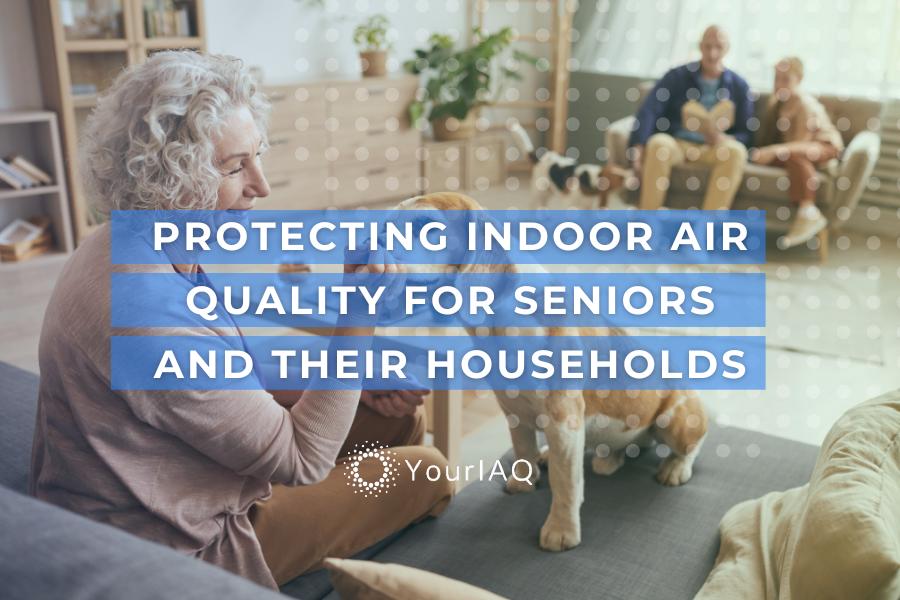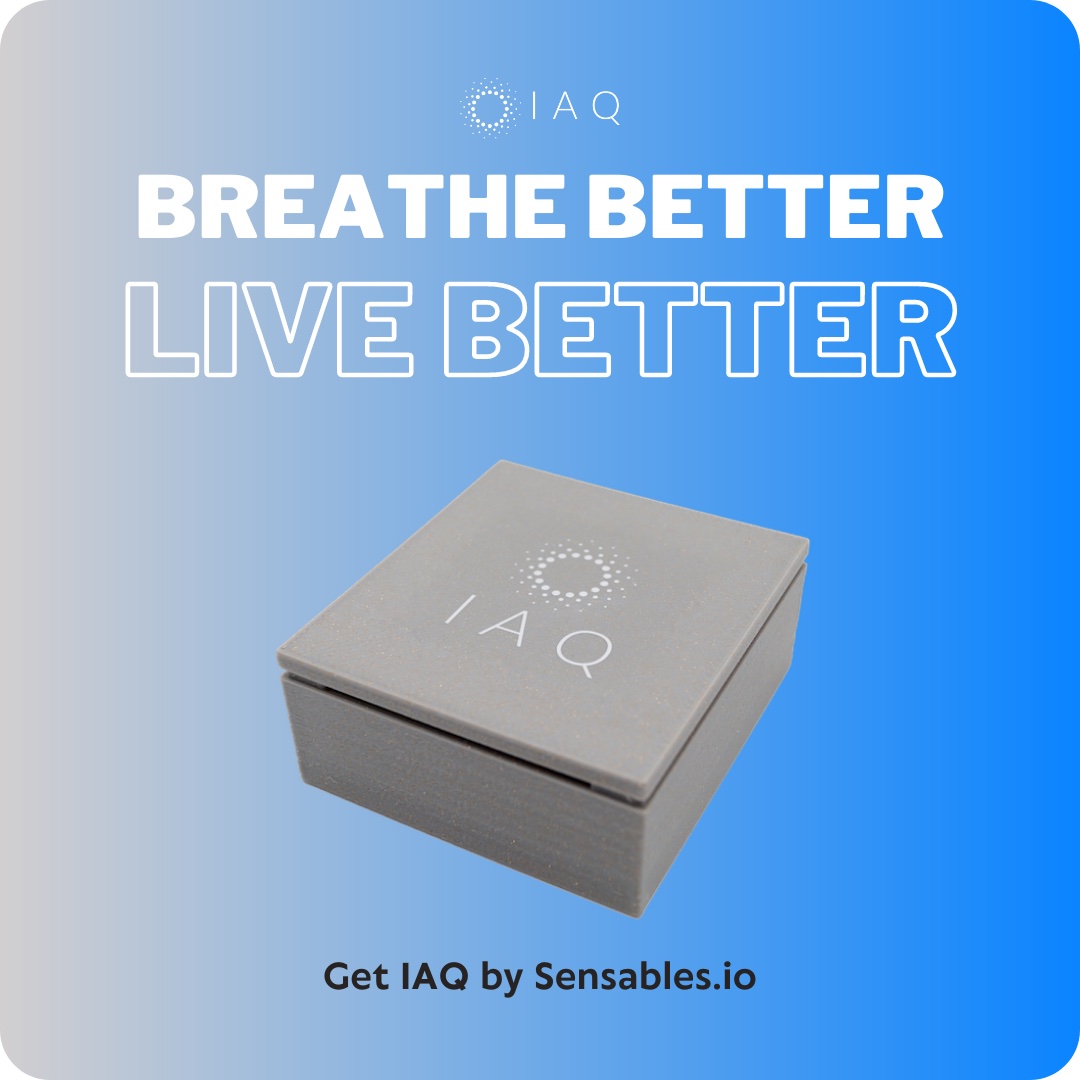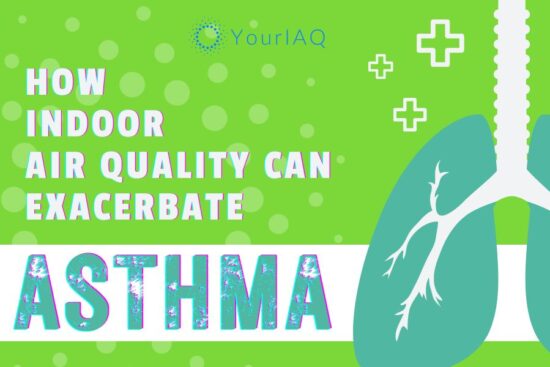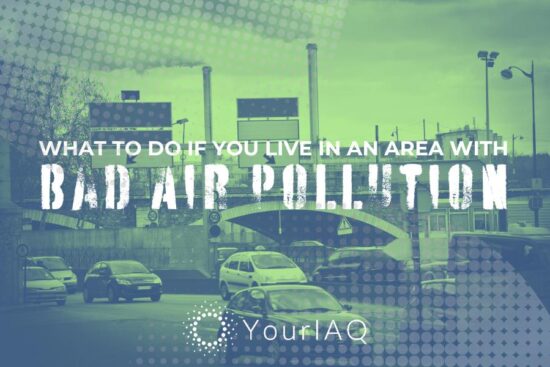
Breathing clean air is essential for everyone, but it’s especially crucial for older adults. Because of the negative effects associated with age-related health conditions, managing indoor air quality for seniors should be a priority for anyone responsible for the care of vulnerable populations.
The US EPA reports that we spend 90% of our time indoors, with seniors likely spending even more due to age-related changes. Indoor pollutants are 2-5 times higher than outdoors, making seniors twice as likely to suffer respiratory issues linked to indoor air pollution compared to younger adults.
But fear not! This guide serves as your weapon against these risks. We’ll equip you with the knowledge and actionable steps to combat indoor air pollution and safeguard your loved ones’ health. We’ll explore common pollutants lurking in homes, their specific dangers for seniors, and effective strategies to create a clean and healthy household.
Join us on this journey to ensure every breath taken within your home is safe and nourishing, especially for the precious older adults who share it with you.
Why Seniors Are More Vulnerable to Air Pollution
Imagine taking a deep breath of fresh air and feeling rejuvenated. While this simple act might come naturally to most, seniors often face an uphill battle when it comes to breathing easily. As we age, our bodies undergo countless changes, both inside and out. These changes, while a natural part of life, make us more sensitive to environmental factors like air pollution.
Read more: Practical Strategies for Clean Air for Seniors, Asthmatics, and Infants
Changes to Lungs
Think of your lungs like two balloons, expanding and contracting to fill with air. Unfortunately, these balloons lose some of their elasticity over time, making it harder to take deep, cleansing breaths. This makes seniors more susceptible to irritants like dust and smoke, leading to coughing, wheezing, and discomfort.
As Dr. David Mannino, Professor of Pulmonary Medicine at the University of Kentucky, states, “Even low levels of indoor air pollution exacerbate existing respiratory conditions in seniors, leading to increased hospitalizations and decreased quality of life.” This highlights the importance of clean indoor air for everyone, especially our vulnerable elderly population.
See also: How Indoor Air Quality Affects Lung Health
Changes to the Immune System
But it’s not just our lungs that change.
Our immune system, our body’s natural defense against invaders, will also become less efficient with age. Remember getting a cold and bouncing back in a few days when you were younger?
Now, those same sniffles might linger for weeks. This lowered immunity makes seniors more vulnerable to infections and complications triggered by poor indoor air quality.
Existing Disease/Health Condition
For those already struggling with respiratory issues, exposure to indoor pollutants is like adding insult to injury. It can exacerbate existing conditions and make breathing even more difficult.
| TAKEAWAY
As we age, our bodies become more sensitive to environmental factors. Age-related changes like weakened immune systems and pre-existing respiratory conditions make seniors more susceptible to the negative effects of air pollution. |
Unveiling the Sources of Indoor Air Pollution
Now, let’s explore some common culprits hiding in your home:
- Household cleaners: Many cleaning products contain VOCs that irritate the lungs and eyes. Opt for natural cleaning solutions or products with low VOC content.
- Mold and dampness: Damp areas encourage mold growth, releasing spores that trigger allergies and respiratory problems. Address moisture issues promptly and ensure proper ventilation in bathrooms and basements.
- Pet dander: If you have furry friends, their dander contributes to allergies and asthma symptoms. Regular bathing and brushing help reduce dander.
- Smoking: Secondhand smoke, even from outside sources, is extremely harmful to anyone, especially seniors. Create a smoke-free environment both indoors and outdoors.
- Radon: This naturally occurring radioactive gas seeps into homes, increasing the risk of lung cancer. The American Lung Association recommends testing your home and taking mitigation steps if necessary.
5 Strategies to Safeguard Household Air Quality for Seniors
Fortunately, there are several steps you can take to make your home a healthier environment for seniors:
1. Allow fresh air inside your home.
The World Health Organization (WHO) recommends 20-30 minutes of daily ventilation, so open windows regularly and install exhaust fans in kitchens and bathrooms to remove moisture and pollutants.
2. Use plants as natural air purifiers.
Houseplants like peace lilies and snake plants help absorb toxins and improve humidity.
Here’s how they help your seniors breathe easier:
-
Toxins be gone: Through a process called phytoremediation, these plants absorb VOCs (volatile organic compounds) like formaldehyde, benzene, and trichloroethylene, common pollutants found in paints, cleaning products, and furniture.
-
Humidity heroes: Many houseplants, such as spider plants and Boston ferns, release moisture through transpiration, increasing humidity levels in your home. This helps alleviate respiratory discomfort and dry skin, a common concern for seniors.
-
Improved overall well-being: Studies suggest houseplants reduce stress and anxiety, further promoting a healthier environment for seniors.
3. Cultivate clean living habits.
Opt for natural cleaning products or low-VOC alternatives to minimize harmful emissions. Declutter regularly to reduce dust-trapping surfaces and maintain humidity between 30% and 50% for optimal comfort and mold prevention.
4. Stop smoking.
Even small amounts of secondhand smoke are devastating for seniors, posing unique health risks beyond those faced by the general population. Inhaling just a whiff indoors or outdoors has serious consequences, making a complete smoking ban absolutely crucial in their households.
Here’s the stark reality:
- The American Lung Association estimates secondhand smoke exposure causes over 41,000 deaths annually in the US, with many victims being non-smokers. Seniors are particularly vulnerable, with a 2015 study published finding an 80% increased risk of pneumonia in adults exposed to secondhand smoke during their childhood years.
While a complete smoking ban is essential, remember support is available for those who want to quit. The Centers for Disease Control and Prevention (CDC) offers valuable resources to help smokers kick the habit.
See also: How Smoking Affects Indoor Air Quality and Health
5. Invest in smart home solutions.
Invest in air quality monitors to track pollutant levels and adjust your strategies accordingly. Smart home systems that automatically adjust temperature and humidity further enhance IAQ.
Here are some smart ways to have clean air:
- HEPA filters: Look for purifiers with HEPA filters rated HEPA 13 or higher for maximum particle removal efficiency. Opt for multi-stage filtration systems that also target VOCs and other gaseous pollutants.
- UV purifiers: These filters utilize ultraviolet light to kill bacteria and viruses in the air. However, they don’t remove dust and other particles, so they should be used in conjunction with HEPA filters.
- Smart home systems: Invest in systems that monitor and automatically adjust temperature, humidity, and ventilation based on air quality readings and occupancy.
Keep in mind
Technology is a valuable tool, but it’s not a magic bullet. Always prioritize source control and good ventilation practices alongside technological solutions.
6. Do regular maintenance and IAQ checks.
Don’t let air quality become an afterthought:
- Professional IAQ assessment: Get a professional assessment, especially if you suspect hidden issues like mold or malfunctioning ventilation systems. Look for professionals who can demonstrate their expertise through relevant certifications and industry affiliations.
- Cleaning HVAC systems: It is crucial to clean the air ducts and filters in your heating and cooling system regularly. Follow manufacturer recommendations and schedule professional cleaning as needed.
- Air quality monitoring devices: Portable or continuous air quality monitors help track pollutant levels and adjust strategies accordingly. Choose models certified by independent organizations like the Underwriters Laboratories (UL) for accuracy.
The Role of Diet and Lifestyle for Healthy Lungs
Dr. Susan B. Rifkin, Professor of Public Health at Emory University, emphasizes, “A healthy lifestyle mitigates the negative effects of air pollution on seniors’ health. Even small changes in diet, exercise, and hydration make a big difference.”
Here are some lifestyle choices to help empower your loved one:
- Antioxidant-rich diet: Consuming fruits, vegetables, and whole grains helps boost your immune system and fight off cellular damage from pollutants. The National Institute on Aging recommends incorporating berries, leafy greens, and nuts into your diet.
- Physical activity: Regular exercise improves lung function and overall health, making you more resilient to respiratory issues. Aim for at least 30 minutes of moderate-intensity exercise most days of the week.
- Hydration: Drinking plenty of water helps thin mucus and keep airways healthy. Eight glasses of water per day is recommended, and the amount should be adjusted based on individual needs and activity levels.
Engaging Seniors in IAQ Protection
Getting seniors involved in improving their own IAQ can be both beneficial and empowering:
- Easy-to-use tools: Choose air purifiers and monitoring devices with simple controls and clear displays. Consider voice-activated options for added convenience.
- Involving them in daily checks: Encourage seniors to participate in opening windows, checking air purifier filters, and maintaining a tidy environment. Foster a sense of ownership and responsibility.
- Open communication: Discuss the importance of IAQ and the steps you’re taking to improve it. Listen to their concerns and address them effectively.
Tip: The National Council on Aging (NCOA) emphasizes the importance of building trust and understanding when educating seniors about health issues. Be patient, answer their questions thoroughly, and avoid using overly technical language.
Implementing IAQ Improvements
Now that you have a solid understanding of IAQ and its importance, it’s time to take action! Here are some practical steps you can implement:
Prioritize
Start by identifying the biggest potential threats to IAQ in your home. Is it mold growth in the basement? Excessive use of harsh cleaning products? Once you pinpoint the priorities, tackle them one by one.
Start small
Begin with simple changes like switching to natural cleaning products, opening windows regularly, and maintaining proper humidity levels.
Set a budget
Decide how much you can realistically invest in improving IAQ. Remember, even small changes will make a big difference. Don’t worry. You can gradually add more advanced solutions over time.
Wrapping It Up
Creating a healthy home environment with good IAQ is everyone’s responsibility, especially when it comes to protecting vulnerable populations like seniors.
By understanding the key factors that impact IAQ, implementing practical strategies, and seeking professional support when needed, you can significantly improve the air quality in your home and promote the well-being of all your loved ones, fostering a healthier and safer environment for everyone.
You have the power to make a difference.
Frequently Asked Questions
How can I identify if my indoor air is polluted?
Some signs of poor IAQ include visible mold growth, musty odors, dust buildup, allergy symptoms, and frequent respiratory issues. Additionally, air quality monitors can provide more objective data about pollutant levels.
What are the best air purifiers for seniors?
Look for air purifiers with HEPA filters and consider their noise levels, ease of use, and maintenance requirements. Consulting a specialist familiar with senior needs can offer personalized recommendations.
Which age group is most vulnerable to air pollution and why?
Seniors are the most vulnerable due to age-related factors such as weakened immune systems, reduced lung function, and a higher likelihood of having chronic health conditions like asthma or heart disease.
What are the respiratory effects of air pollution on vulnerable populations?
Air pollution can worsen existing respiratory issues (asthma, COPD) in seniors and even lead to new problems like chronic bronchitis and lung cancer.
When should I seek professional help for IAQ?
If you suspect extensive mold growth, have concerns about ventilation systems, or experience persistent health problems despite your efforts, seeking professional assessment and remediation is crucial.







